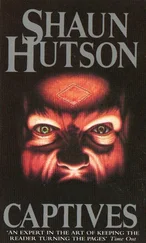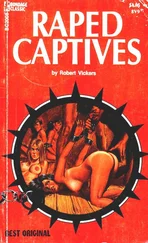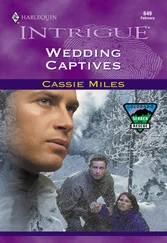Norman Manea - Captives
Здесь есть возможность читать онлайн «Norman Manea - Captives» весь текст электронной книги совершенно бесплатно (целиком полную версию без сокращений). В некоторых случаях можно слушать аудио, скачать через торрент в формате fb2 и присутствует краткое содержание. Год выпуска: 2014, Издательство: New Directions, Жанр: Современная проза, на английском языке. Описание произведения, (предисловие) а так же отзывы посетителей доступны на портале библиотеки ЛибКат.
- Название:Captives
- Автор:
- Издательство:New Directions
- Жанр:
- Год:2014
- ISBN:нет данных
- Рейтинг книги:3 / 5. Голосов: 1
-
Избранное:Добавить в избранное
- Отзывы:
-
Ваша оценка:
- 60
- 1
- 2
- 3
- 4
- 5
Captives: краткое содержание, описание и аннотация
Предлагаем к чтению аннотацию, описание, краткое содержание или предисловие (зависит от того, что написал сам автор книги «Captives»). Если вы не нашли необходимую информацию о книге — напишите в комментариях, мы постараемся отыскать её.
Captives
This is a moving account of a country shaken by communism and anti-Semitism and haunted by recent atrocities, from "a distinguished writer whose vision of totalitarianism is close to Kafka's cloudy menace, universal yet internalized" (Richard Eder,
).
Captives — читать онлайн бесплатно полную книгу (весь текст) целиком
Ниже представлен текст книги, разбитый по страницам. Система сохранения места последней прочитанной страницы, позволяет с удобством читать онлайн бесплатно книгу «Captives», без необходимости каждый раз заново искать на чём Вы остановились. Поставьте закладку, и сможете в любой момент перейти на страницу, на которой закончили чтение.
Интервал:
Закладка:
My only duty was to not forget. Nor would that have been possible anyway. I was holding on for dear life to any obligation.
• • •
The reunion only lasted a few hours. Though the old city recognized its former star quickly, I didn’t make my act of contrition. Not much remained of my former precocity, and I spared my old teachers the sight. I didn’t visit Virgil and Ileana Mehedinţi either. Now, all I could do was return to Sebastian Caba and kneel before him: I’d tap timidly on his window. I’d tell him what had happened. I’d become his disciple. I’d learn the secrets of serenity from the master himself. Of course, I’d go down on my knees in the snow. That’s the only way he’d agree to direct my words and deeds in such a way that I’d regain the use of my fellow feelings and benefit from the misfortune that had thrust me so briskly from one camp to another.
Because there were so many detours involved, the descending star had to expend more energy on the way down than he’d used to climb the chilly heights. I was a dilettante, but the university clerks weren’t too careful with the information they received, and I graduated. After that, we should have fallen into our proper places: I to the ticket window of a movie house, he to the champagne, furniture, or limousine factory. In the end we went where the wind blew; I to the worksite, he to the factory where we would meet again one bright, clear morning, like in the old days.
A large room with empty desks; it was spring. Caba’s slender hands went on noisily rustling through new banknotes. My guide was a thin, silent girl, and I let her pass in front of me. I was becoming Sebastian’s colleague again. We would see each other daily. And the years would pass quickly — I kept running on the staircase, up and down. There were circuits, industrial ovens, columns. And so I went on rapidly crossing the corridor of days until the cycles of rebirth suddenly came to a momentary halt in the long Buddhist corridor where my eerie sister’s eyes waited to ambush me. I had no time. I went racing toward the orange afternoons: the cheerful whores of amnesia were waiting for me. Damp mornings, tram, crowd, desk, drawing boards, typewriters, slide rules, cigarettes, telephones, drawings, Monday, Wednesday, March, September, long mornings, short afternoons with the office sluts: Madam Whoozits, Comrade Whatzits, the former friend, the former widow, former wife, the former ice skater who sang in the evenings (opening the windows and letting down her red hair — as red as the Revolution), or the other one, the flautist with eyeglasses, or the other one. . My former colleague was serious, determined, preoccupied by family, meetings, and studies, up-to-the-minute with everything — what should be known and done; I was becoming increasingly dim, wiped-out, lazy, indifferent, opaque to anything that might have touched me.
Still, a slave to youth, skipping steps, opening and slamming doors: invaded by voices, laughs, telephones, and the persistent feeling of a cat’s eyes lurking in the shadows. Hurrying, I pushed my luck: in a single moment of hesitation, everything would have fallen to pieces: the chief engineer would have discovered that I was braiding his wife’s blond hair; the doctor would have caught me with the flautist, musically in flagrante delicto. I’d have collapsed on the spiral stairs. Sometimes suddenly the collar of my blue shirt would throb. I’d shudder. The days went on darkening.
It was probably a morning when the light radiated differently. My arms, throat, and collar felt cold. I turned suddenly to meet what seemed to be Dona’s hands and hair, which I stubbornly persisted in not seeing. The light was faltering; metallic glints crossed each other from the corner of a corridor. My hands trembled. I found the cold knob of a door — a room.
Big eyes and a lusterless forehead: the darkness entwined her head as if it were Dona’s black hair, as if she still had those long, powerful braids of yore gathered into a crown. Dona, my dead sister, was watching me from the end of the corridor to confirm I was living, running, skipping steps. She haunted my gestures to convince herself and me that I was alive and could see her — pale, beautiful, shaved bald. Mature now, I wasn’t crying like a stupid little kid because they’d shaved her again and not a single strand of hair was left on her head or because we were dragging out our transparent days without the courage to release a door, a voice, a sound.
I was seeking voices, laughter, and doorbells so that people would find that I was hurling myself on the young body of the orange afternoons. Yes, yes, orange. I could wait for the phantom from the end of the corridor to come toward me, to rouse me, to take me by the hand, and for us to advance slowly, falteringly, in slow-motion, on the screen of a story in which I was turning into my formerly orphaned self with fierce, dark-circled eyes, slipping among patrols and horses on the edge of the dark water and the endless, black nights.
• • •
Had received the envelope Tuesday. Tuesday evening: was on the train. Wednesday I would encounter the old town’s silent streets again. No one waited for me behind the windows. On Wednesday I met my mother’s pain, my punished father’s absence and shame, the illness of the one who was becoming my sister, the terrible illness that was corroding her skin, her hair, her romantically cadenced sadness. It was Wednesday that was hard for me — for them too, and for the roles waiting for us under the city’s wide eyes. Eva and Dona had their sights trained on us; we had no more strength.
Thursday: picked up the courage to walk through the streets of the sloped town, where only yesterday I’d been a precarious little celebrity. I would need to meet Father so that I could talk to him. Every step through the autumn mud told me I should meet with him alone. Then I’d be able to say:
“When I was young, you avoided me and my overblown words. You rejected my suspicions and reproaches. Great expectations sharpened the way I looked at things, and you must have sensed I’d catch you red-handed at the miserable games you played to readapt. You didn’t have the strength for my kind of candor anymore — or reproaches or remorse either. And I was too young: I dreamed of cementing impossible moral absolutes, so I distanced myself from you. You were a man of duty, of course, so maybe our conflict was simply a generational affair, which would have made it remediable. Still, I saw you as an enemy. Sometimes I wanted to kill you — just like a real son. A lot of people feel that way during a teenage crisis. In the end, I saw your zeal as honest and stupid. I knew you were always completely upright. That was a reason for trust, maybe even pride, but in the battle against myself that I’d eventually lose, nothing but sarcasm would do.”
Skidding, my rubber sole sank into the soft autumn clay. I gripped the auditorium’s wall with my palms. Here, lifted in a whirlwind of applause, I had recited poems of assault and ardor to my fellow citizens’ delight. I had been their hero, their resounding echo. Famished for spectacle and glory, my frenzy had taken this form, but I gave all that up the day I became capable of imagining what work would have been like in a salt mine. I suspected my Father of the discipline of submission and slavery. I thought he lacked fire and force. I was blind and young: it might have been fixed, oh, yes, our incompatibility might have been solved through minor adjustments — the confusions might have been cleared up.
“You didn’t know that I was starting to stray into dangerous experiments, to see the unsuspected possibilities of the double game, to listen for anything off-key in the ambient arias — all those falsified false notes. I had discovered ways of using my weaknesses. Yes, I had discovered my weakness. . weaknesses. . I was no longer the hero: I had discovered the path of dissimulation; I was trying to make something of myself, proudly convinced that I could make anything of myself, and I was amazed and delighted, disgusted and subjugated by the farces I was preparing.”
Читать дальшеИнтервал:
Закладка:
Похожие книги на «Captives»
Представляем Вашему вниманию похожие книги на «Captives» списком для выбора. Мы отобрали схожую по названию и смыслу литературу в надежде предоставить читателям больше вариантов отыскать новые, интересные, ещё непрочитанные произведения.
Обсуждение, отзывы о книге «Captives» и просто собственные мнения читателей. Оставьте ваши комментарии, напишите, что Вы думаете о произведении, его смысле или главных героях. Укажите что конкретно понравилось, а что нет, и почему Вы так считаете.












